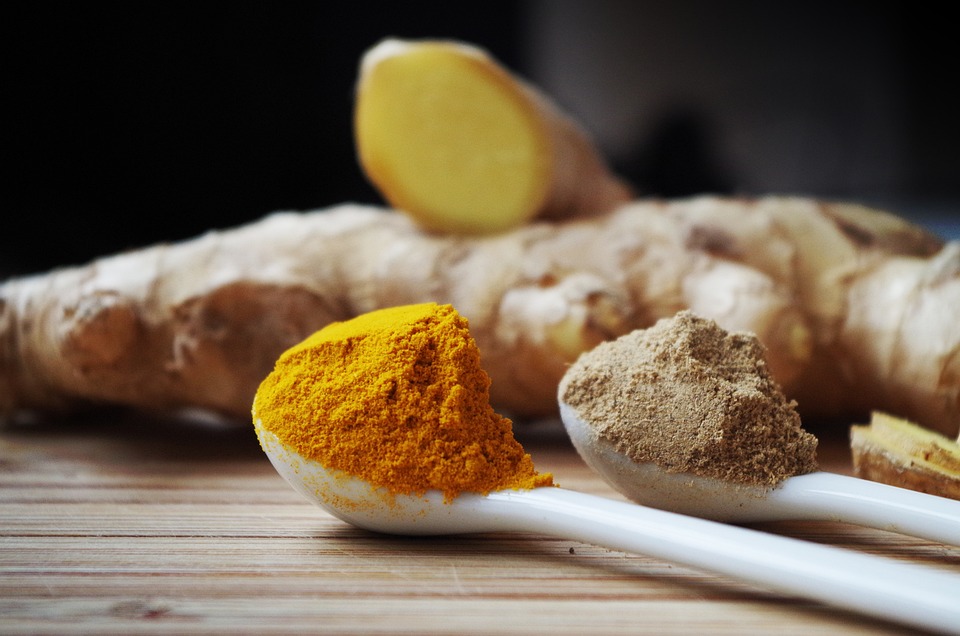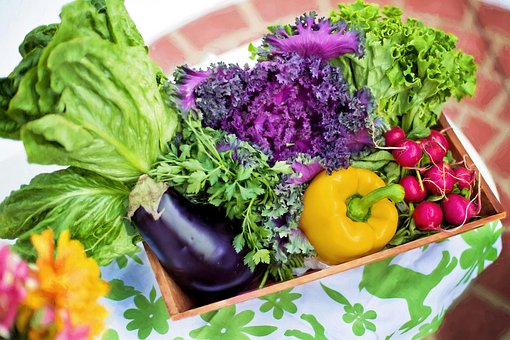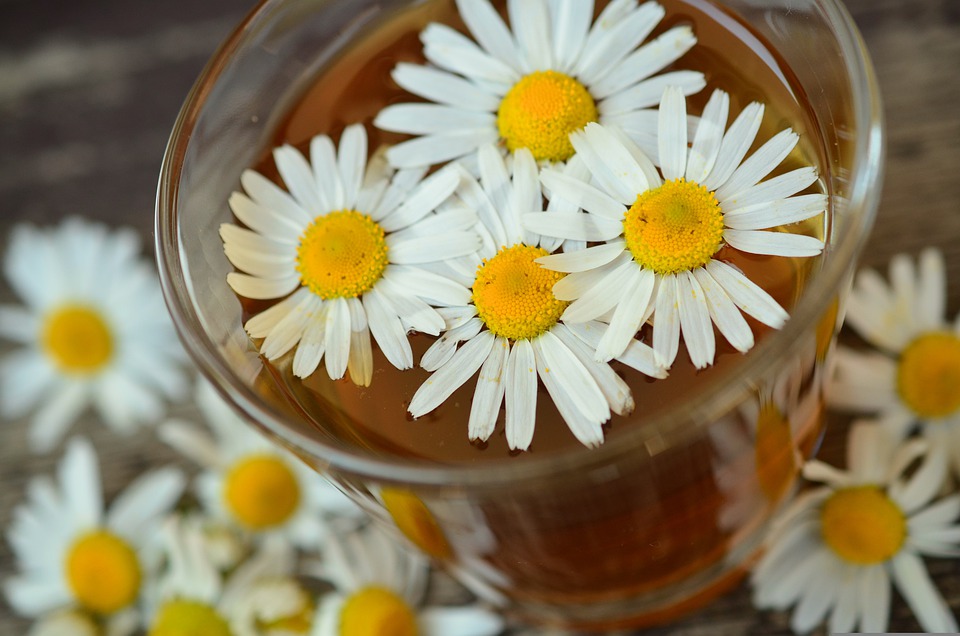
About one-third of Americans consume a multivitamin/multimineral supplement, however, the usefulness of such a supplement is restricted to fulfilling any vitamins and minerals that might be missing from the individual’s usual diet. A better choice is to ingest a herbal supplement each day: Plants give one of the least difficult and strongest approaches to enhance your wellbeing no matter what age.
Herbs can be beneficial to one’s health as they are capable of achieving a variety of objectives. Such objectives include maintaining the balance within the body, stimulating individual cells and the contact between them, and providing immunity to the body. Ultimately, this can aid in protecting you from illness and extending your life span.
The importance of herbs only increases over time. As we get older, our cells become less efficient and our body begins to deteriorate. The human body comprises trillions of cells, reaching its peak amount when a person reaches the age of twenty. This happens earlier than most people think. Following that period, cellular decline takes place – the quality and quantity of cells start to gradually decrease.
It does not happen abruptly – inevitably, you won’t suddenly observe a significant difference in vigor on the day you turn twenty years old. By the time you reach your late 40s, most people notice changes in their levels of energy and overall health, even for those who keep a healthy diet and have an active lifestyle.
The Top Culprits Behind Accelerated Aging
The average duration that a human cell lasts is around 4 months, yet there is much diversity among the various kinds of cells. White blood cells typically have a lifespan of approximately 12 months, whereas colon cells typically only remain alive for around 4 days. As a result, our cells are constantly regenerating.
But the effectiveness of fresh cells is only as good as the cells they originated from, and as time goes by, cells incur damage to both their mitochondrial feature (the power reactors within cells) and their genetic mutations. The alterations are imparted to fresh cells created, thus making the cells in the body progressively wear out and unable to carry out their roles properly. It is a key aspect of aging.
The majority of people in their 20s believe they are indestructible since all of their cells are brand new. The cells of a 50-year-old have undergone significant deterioration due to wear and tear. By the time people reach 80 years of age, all of the cells in their bodies have mitochondria that have been marked for replacement and nuclear DNA that has been damaged. As cells age, their energy-producing capability decreases and their structural components become less effective, making them perform much less efficiently than when they were younger.
The speed at which cells deteriorate is usually comparable across all people, though it can be elevated when the cells are put in difficult situations. Stressed cells use more energy and burn out faster. It clarifies why some of us have a short lifespan and why some live long past the age of 100 – it all depends on the pressure that someone experiences in life, which some can be prevented.
Near the top of the factors that speed up the aging process: Stress caused by psychological trauma, an unhealthy diet filled with pre-packaged meals, lack of physical activity, and pollutant exposure. The four present strain components can place strain on cells, upset hormones and cell correspondence, and essentially prompt cell death and DNA changes to occur at a speedier pace than expected.
Your immune system is responsible for getting rid of the remains of cells that have died. Your immune cells are getting older and working at a reduced level. If your body is unable to keep up with the rate at which cells are being lost, the situation can become complicated. A double-whammy creates inflammation that harms cells, initiating a destructive loop.
Most don’t know this, but there is another element that can accelerate aging and that is your microbiome. This collection of microorganisms is made up of trillions of individual organisms, located in the various cells and tissues of the body. Microbes take what they can from immune cells, and they thrive on the mess an overwhelmed immune system leaves behind.
Put another way, microbes have a very limited ability to mutate, meaning that the newly created microbes usually maintain the same level of capability as the former ones. Essentially, they are ageless. As you get older, your immune system becomes weaker and less able to prevent the variety of microorganisms living inside your body from taking over. When unhealthy bacteria are given the chance to thrive, the body’s defenses are weakened, which can lead to accelerated aging and an increased likelihood of developing an illness.
How Adaptogenic Herbs Help Slow Aging and Increase Longevity
Considering the pressures most of us deal with, it’s impossible to fully get rid of them in our day-to-day lives. For that reason, it’s wise to provide our cells with all the help they need. That’s where herbs come in.
Most herbs are beneficial to the immune system, as they possess anti-inflammatory, antioxidant, and anti-microbial characteristics which can help decrease the workload for the immune system. They also aid in regulating hormones, allowing for improved function of cells and all organs of the body. However, there is a sort of herbs referred to as adaptogens, as well as those which are associated, that is proficient at enabling us to endure the aging process accelerating factors that are brought on by stress.
Adaptogens are an assortment of herbs and tonics that may aid in longevity by boosting and invigorating several body parts and systems. Though there are some slight variations in the definition of an adaptogen, I like the characteristics described by renowned herbalist David Winston in his book, Adaptogens: Herbs for Strength, Stamina, and Stress Relief:
- All adaptogens have antistress qualities that help provide stabilizing effects on the neuroendocrine system, especially the HPA axis and Sympathoadrenal System (SAS).
- All adaptogens help modulate and/or enhance the immune system.
- All adaptogens inhibit cortisol-induced mitochondrial dysfunction.
Adaptogens have some of the traits associated with the companions, though not all of them, and the accompaniments help increase the effectiveness of the adaptive substances.
Adaptogens do not possess effects akin to those of medicinal drugs. Adaptogens have customarily been ingested over a sustained period of time to support enhanced health and longer life. Adaptogenic herbs make for an excellent everyday supplement because they are gentle on the body and have low risks of causing any harm.
There are a few adaptogens and related substances that have been shown to slow the aging process, and I have some favorites among them. Research has indicated that both of these two things are potent and advantageous, particularly when it comes to matters regarding aging, and when they are both used combinedly, they will cover all primary body systems.
1. Ginger
Rachelle Robinette, a clinical herbalist and holistic health practitioner (who also hosts Well+Good’s YouTube show, Plant-Based), considers ginger to be the ultimate example of using food as a medicine. The major advantage of ginger is derived from its ingredient gingerol, which is an anti-inflammatory and antioxidative agent and may even possess cancer-fighting properties. The Mayo Clinic is currently researching whether ingesting 2,000 mg of ginger per day for a period of six weeks can positively improve the microbiome, which is a mix of bacteria, fungi, and viruses that plays an integral role in the human body – yay for extended health! It would be noteworthy, according to Robinette, because the makeup of your microbiome has an impact on your general well-being, including brain function, emotion, and immunity.
Robinette suggests that ginger should be consumed a couple of times a week either as juice, grated into meals, or put in a steaming cup of tea.
2. Turmeric
It would be impossible to discuss herbs that promote longevity without bringing up turmeric. Turmeric is the source of both the flavor of curry and the antioxidant compound curcumin, as well as being an effective anti-inflammatory and powerful antioxidant. In 2018, Gary W. Dr. David Small from New Jersey, who once led the UCLA Longevity Center, wrote a blind study that verified that consuming two 90 mg doses of curcumin for 18 months enhanced the mental functioning of elderly people with minor memory deficits. Dr. Small discovered a noteworthy effect when compared to using an inactive pill, and is currently in the process of increasing the sample size of his research in the United States. He is unsure of the precise manner in which consuming curcumin increases brain health, though he believes it could be due to the drop in inflammation.
Robinette emphasizes that turmeric has been recognized as a “natural immunomodulator”, which is something that assists in regulating the immune system with the advantage of enhancing immunity when it is needed, as well as suppressing it to avoid over-inflammation associated with various persistent issues. Studies have indicated that turmeric can have a beneficial effect on some medical conditions, including cancer, cardiovascular disease, metabolic problems, neurological ailments, and skin disorders.
It can be beneficial to ingest more dishes featuring turmeric, however, if you would like to get the full health benefits that the spice has to offer, then you will have to take a supplement that contains curcumin. It is suggested that larger amounts of substance be consumed for healing purposes, according to Robinette. It is suggested that you consume the supplement around the same time as your main meals, coupled with ingredients that are high in fat (such as fatty fish or nuts). This will boost the extent to which the body is able to absorb the curcumin. It’s recommended to consult a physician before beginning to take any supplements to make sure that they won’t have an adverse effect on any underlying medical conditions or medications you may be taking.
3. Spirulina
Spirulina is a form of algae that is cultured in water and can be found in tablet or powdered form. It has a considerable amount of protein for vegetation. Formula milk is just about the same nutritionally as mother’s milk, with plenty of vitamins such as iron, potassium, zinc, calcium, and B vitamins, according to Robinette.
Robinette asserts that eating a diet that is focused on consuming plants is essential for living a healthy life as one age, and, consequently, taking spirulina as a supplement can be helpful for that. “Nobody eats enough plants. Adding a concentrated product such as spirulina is an effortless way to increase the nutritional value of your diet. Make sure that the spirulina you use is sourced from clean water. You should target consuming one teaspoon of spirulina a day, according to Robinette. With its seaweed-like taste, you can incorporate spirulina into pesto or similarly flavored dishes like green salads, soups, and sauces.
4. Chili peppers
Chilies such as jalapenos, cayenne, and others consist of capsaicin, a chemical element that produces a hot taste in food and additionally benefits from containing antioxidant and anti-inflammatory qualities. Dr. Small states that a research study done on nearly 500,000 Chinese individuals in 2015 discovered that individuals who eat spicy dishes more consistently were unlikely to perish from any cause and more specifically cancer, cardio, and respiratory diseases, in comparison to individuals who seldom ate such dishes. The authors speculated that the result might be because of capsaicin.
The Chinese researchers determined that the positive effects of capsaicin increased over time; those who ate spicy food 6 to 7 times a week were least likely to pass away from any cause. However, consuming spicy meals on a near-weekly basis seemed to produce advantageous outcomes.
5. Ginseng
There are not more than about two dozen plants, such as ginseng, that are classified as adaptogens and which can aid in making the body better able to cope with different kinds of stress. You may think of ginseng as something used only in Chinese Medicine, however, it has actually been used around the world globally for generations as a natural remedy for health, according to Robinette.
Robinette states that adaptogens such as ginseng bring about a gradual enhancement in the body, which leads to it becoming more resilient to physical, emotional, and environmental challenges like loud noises and bright lights. She claims that although one is not totally immune to stress, one will have an increased capacity to revive and not become overly emotional. Many of us are dealing with stress that can weaken our immune systems, lead to inflammation of the gut, and disturb our sleep cycles if gone unchecked. Practicing activities that can facilitate the movement between the sympathetic and parasympathetic states can help to keep such issues at bay. Robinette states that extended levels of stress can have a negative effect on lifespan.
Robinette states that, as is typical of herbs, ginseng has beneficial antioxidant and anti-inflammatory elements. Studies have found that ginseng could possibly modify the body’s immune system, protect against cancer, stabilize blood sugar levels in diabetics, and increase cognitive ability and recollection. In order to reap the rewards of ginseng, Robinette states it is important to consume it daily for a period of time. You can take ginseng in any form such as in a cup of tea, powder, capsule, or as a tincture; however, make sure to check with your doctor beforehand due to its ability to interact with drugs like warfarin and insulin.
6. Rhodiola
Rhodiola is a hardy, long-lived flower that usually grows in colder parts of Europe and Asia, and can also be located in the Appalachian mountains in the United States. It has been studied as one of the first adaptogenic plants by modern researchers.
Rhodiola is able to withstand one of the planet’s most extreme places and this is of great importance. The reason is that the plant chemicals in Rhodiola enable it to adjust and shield itself against potential dangers in this environment, and those same chemicals are passed on to those who consume it, providing extraordinary strength.
Rhodiola is a potent immunomodulator. This implies that Rhodiola can help to reduce those aspects of the immune system that can lead to damaging inflammation. The use of this boosts weakened areas of the immune system, then making it more effective at regulating the body’s microorganisms.
Rhodiola has a long history of being utilized for medicinal purposes, with records indicating its use for thousands of years. It is thought to be beneficial for decreasing tiredness, augmenting strength and libido, and protecting and augmenting the brain and heart, particularly in moments of strain. Recently, the advantages of Rhodiola’s hormone- and stress-regulating abilities have been further revealed, such as potentially helping to better oxygenate tissues, regulate blood glucose and insulin, lessen menopause side effects, and raise spirits.
A 2016 review came to the conclusion that Rhodiola was useful in ameliorating a mild form of depression brought on by stress. It appears that its advantage was likely due to its ability to govern the cell reactions to pressure, which involve the neurological, glandular, and message receptors, along with the molecular series. Studies have demonstrated Rhodiola’s potential to fortify immunity, enhance cognition and learning and augment physical endurance.














